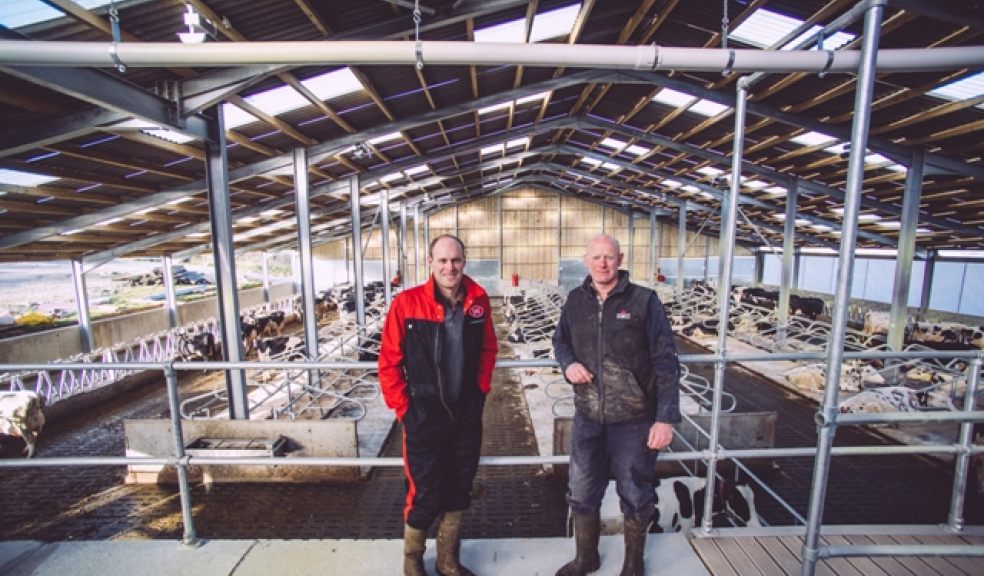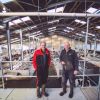
Dairy farm introduces milking robots
If Devon farmer Jon Williams' late father had been told his dairy herd would be milked by robots in 2015, he would have laughed disbelievingly. However, that is exactly what is happening at Higher Hampton Farm in Kilmington as 21st century technology hits the age-old occupation.
But it is Ben, Jon's eldest son and the third generation of the family to work on the farm, who has been the driving force behind this radical change to their livelihoods.
Since the 1970s, much research has gone into investigating methods to alleviate time management constraints in conventional dairy farming, culminating in the development of the Automatic Milking System (AMS).
'Voluntary milking' allows the cow to decide its own milking time, rather than being milked as part of a group at set times, requiring complete automation of the milking process.
With huge benefits to lifestyle, profits and animal welfare, this robotic milking system is initially an expensive option so not a decision taken lightly.
Ben says: "I'd read about the AMS, but we first saw them in 2011 at a dairy show and I thought that's got to be the way forward."
"We dismissed it at first because of the cost," says Jon, who had to be convinced. "Then we realised we had to do something for the cow welfare. You had to see the robots to believe it. Once I actually saw it working on a farm, I was convinced."
The tie traditional milking has on farmers is so extreme it governs their movements and whereabouts every single day of the year. With the robotic system installed, the rigid, unsociable time restraints are eliminated making life easier, a particular draw for Ben, who has a young family.
"It means so much more flexibility," says Ben. "Say you were milking for eight hours a day before, now we can do that in four hours with less people and less man hours.
"It's not so rigid and you're not as tied. For me it means I have more family time."
Jon adds: "As long as the routine robot checks are made in the morning and evening, it doesn't really matter what time it's done."
The herd of 220 cows being milked automatically by four robots may sound a little abnormal but it is actually a more natural process for the animals.
Ben explains: "The cows are getting milked more times a day, more naturally. The idea is like when the cow has a calf, the calf would feed four or five times a day. With the robots, the cow is feeding as many times as she needs to get rid of the milk.
"Her health is therefore better because she never gets bursting full of milk. This prolongs the milking life of an animal by at least a year."
Increased production means the benefits to the future profits are also great, and have started to show surprising quickly. Within the first two weeks, the herd was producing more milk, exceeding what the family were expecting.
But despite all the positive points, this futuristic slant on the age-old living would not suit everyone.
Ben says: "It's affordable as farmers have assets so banks are willing to lend money. Whether every farmer can deal with robots - and wants to - is another matter."
Jon's grandfather put up the cash for Jon's parents to buy the farm 60 years ago. Although a very forward-thinking man - this is the sixth different way of milking at Higher Hampton Farm in six decades - Jon's late father would have found it difficult to visualise.
"I think he would have had to see it to believe it!" laughs Jon.
Jon and his brother, Martin, took over the running of the farm from their parents and Ben joined when he left school at 16. It's now Ben's turn to drive the business forward and to plan for his future.
Ben: "I think this is the future for family farming - it's a much better way of life. There are other ways of milking that are probably equally as efficient that are right for other people but this is definitely the right way for us."



















